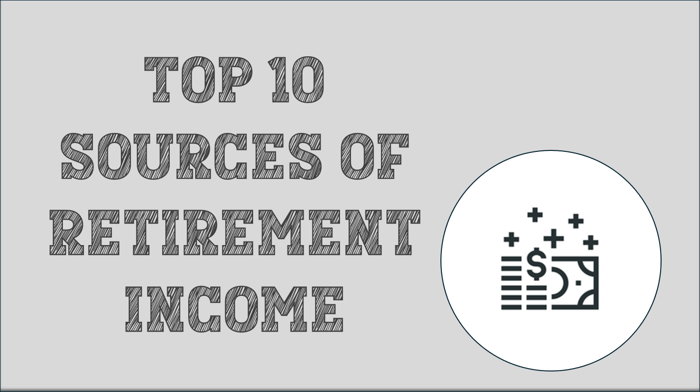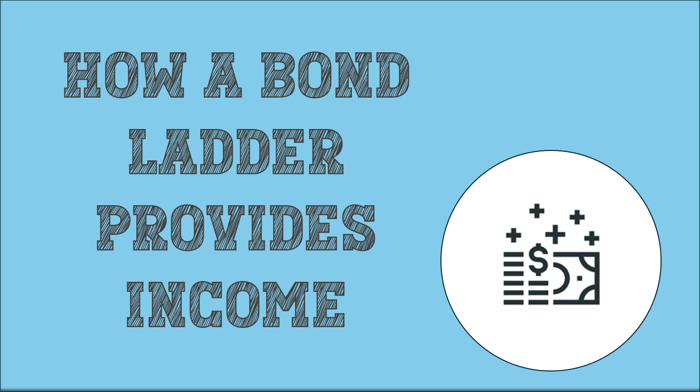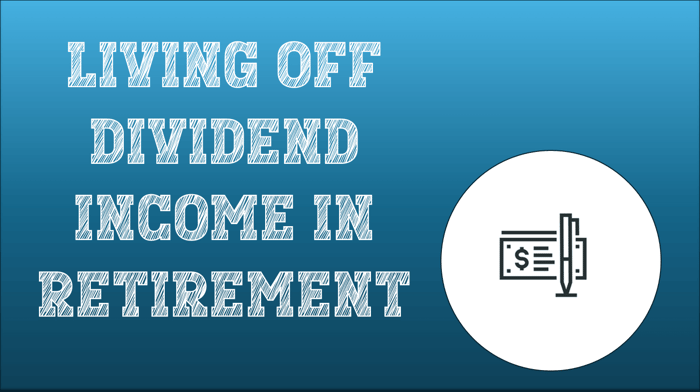The income from your job has probably been your sole source of income for most of your life. Once you retire, that source of income will be gone. However, even in retirement, you’ll still need money to live and pay for your need expenses. Your retirement income will likely come from several sources. In this article, we’ll review the 10 most common sources of retirement income.
1. Social Security – Social Security is perhaps the most valuable and stable income resource for you in retirement. The income benefit can’t be outlived and features a generous Cost of Living Adjustment or COLA. Also, the longer you defer collecting benefits, the more income you’ll receive when you finally start collecting.
However, if you have a certain type of job, your Social Security benefits might not be a reliable source of income. For example, if you’re a public-school teacher in Texas who is expected to earn a pension, your Social Security benefit will be reduced by two-thirds. To learn more about Social Security, click on the my article: What You Need To Know About Social Security.
2. Pension – The most attractive benefit of a pension is the security. If you possess a defined benefit pension plan, then you know exactly how much you’ll receive each year in retirement. The U.S. government very likely insures your funds, so no matter what happens to the financial markets or to your previous company, you will have the income you were promised. The downside to defined benefit pension plans is that you may earn a lower rate of return as compared to other retirement accounts like a 401(k) or an IRA. For more information on pensions, please click on my article: Pensions: Are You One Of The Lucky Ones?
3. Retirement Accounts – Individual retirement accounts give you the freedom to choose where to invest your funds. Also, with IRAs, your savings grow in a tax-free account. Unsurprisingly, the trade-off is that there is a degree of uncertainty in this approach, meaning you must decide what investment vehicles you’d like your savings invested in, for example, stocks or bonds. As a result, you must either learn the basics of investing or hire a financial adviser.
4. Portfolio – There are several ways to use your portfolio to finance your retirement. For instance, you could use a bond ladder or CDs to create stable annual income. You could also withdraw a certain percentage of your principal each year. Or perhaps, you could live off your earnings from dividend income and capital gains from stock investments. Both the advantages and disadvantages of using your portfolio as a source of retirement income are the same: You are 100% responsible for your success or failure.
5. Annuities – Fixed annuities are excellent sources of “longevity insurance.” If you own a lifetime annuity, you have guaranteed income for the rest of your life, even when other sources of retirement income have been exhausted. However, fixed annuities can be expensive. Furthermore, variable annuities feature unreliable returns and a myriad of hidden fees.
6. Part-Time Job – In modern times, working after retirement has reached never-before-seen levels of popularity. All over America, retirees are using the benefits of their retirement to pursue the dreams they put aside. A part-time job often supplements retirement income, but it can vary. Furthermore, a retirees’ health can deteriorate over time, so it’s best not to count on a part-time job as an income source in the later years of your retirement. For more information on using a part-time job for income, please click on my article: Can You Count On A Part-time Job In Retirement?
7. Home Equity – Nearly 18 percent of retirees are using the equity they’ve built up in their home to help pay for retirement. One of the best ways of utilizing your home’s equity is by taking out a reverse mortgage. A reverse mortgage allows you to borrow against the value of your home whereby the funds can be used as a long-term income source or to pay off debt. Unfortunately, with a reverse mortgage, the homeowner no longer owns their entire home. As a result, they will have less to hand off to the next generation.
8. Real Estate – Renting out property can be a fantastic method to grow your retirement income. Whether the property is a single-family home or a full apartment complex, there’s a strong demand for rentals. However, renting properties has some drawbacks. Management fees and repair costs can eat into your profits over time. It’s also important to make sure your rental property is in a location where people want to live. For a more in depth look at rental income, please click on the link for my article titled: Generating Retirement Income With Real Estate Investing
9. Small Business – If you own a small business, you may have another source of retirement income. According to a survey by the Guardian Insurance and Annuity company, over 35% of small business owners said that they are depending on the sale of their business to help finance their retirement. If you have a small business, it’s recommended that you line up a buyer before announcing your retirement to avoid creating the impression of a distressed sale.
10. Inheritance – Some lucky retirees will receive inheritances large enough to help fund their retirement. Of course, money from inheritance isn’t income you can count on since an emergency could reduce or wipe out your inheritance before you receive it. For a more in depth look at inheritances, please click on the link for my article titled: Should You Be Counting On That Inheritance?

Conclusion
In retirement, it’s important to balance risk with security. Some of the income sources listed above are more dependable (like Social Security and bond ladders), while others offer a chance to grow your savings (like owning real estate and reverse mortgages). Ideally, you should use the dependable sources of income to meet your Needs expenses while using the income sources from riskier investments for your Wants and Wishes, as detailed here. To learn more about retirement income and savings allocation, I recommend you speak with a financial advisor.






